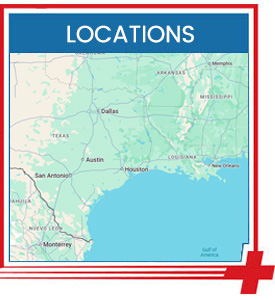Upper Respiratory Infection Treatment Doctor Q&A
An upper respiratory tract infection affects the respiratory system, which is responsible for the breathing process. Upper respiratory infections can cause problems with your sinuses and throat. Runny noses, congestion, sneezing, coughing, and mucus production are all symptoms. Consult Dr. Curtis Grote, MD, and the team at Fast Aid Urgent Care if you are concerned about your symptoms or if they do not go away after two weeks. For more information, contact us or join the virtual line. We have convenient locations to serve you in Bulverde Rd San Antonio TX, Bastrop TX, Alamo Ranch San Antonio TX, La Grange TX, Leon Springs San Antonio TX, New Braunfels TX, Potranco Road San Antonio TX, Dripping Springs TX, Lemon Creek Boerne TX, and Belle Chasse LA.


Table of Contents:
What is an upper respiratory infection?
How long does it take to treat upper respiratory infections?
Will I know if I have an upper respiratory infection?
An upper respiratory infection (URI) most often affects the throat and nasal passages and occurs if a virus or bacteria enters the body, which is usually through the nose or mouth. After being infected, a cough or sneeze near others can easily spread the infection. Homes, offices, classrooms, or any enclosed space where people gather are higher-risk areas for the spread of upper respiratory infection. In most cases, an upper respiratory infection will last anywhere from seven to ten days; however, in some cases, an infection may develop into a more serious condition like a sinus infection or pneumonia. The upper air passages that are prone to infection are the larynx, which is the organ containing the vocal cords the nasal cavity, which is the space behind and above the nose, the nasal passages, and the pharynx, the cavity behind the mouth and nose. A child’s immune system is still developing, and for that reason, upper respiratory infections occur more often in children than adults, who tend to experience an average of two to three infections per year. In addition, children who spend a lot of their time close to other children are at higher risk of infection, as children are less likely to wash their hands as often as they should or wipe runny noses. People in general are more likely to develop upper respiratory infections during the colder winter months simply because they tend to gather indoors more, where viral spread is more likely.
Most URIs will resolve on their own, without treatment, or are treatable at home because the symptoms are relatively mild. However, URIs can cause more serious symptoms, and some will likely require medical care. When symptoms appear, it is a good practice to get a diagnosis, as the symptoms can resemble those of other illnesses, like:
● Seasonal allergies or an allergic reaction
● Asthma
● Bronchitis
● Covid-19
● Influenza
● Pneumonia
Sometimes symptoms don’t respond well to home care or over-the-counter treatments, or they may get worse, and seeking medical care is very important.
Depending on the type of infection, the symptoms will be different, but some of the common symptoms of an upper respiratory infection include:
● Coughing
● Sneezing
● Nasal congestion
● Excess mucus
● Mild fever
● Facial pain or pressure
● Runny, dripping nose
● Sore or scratchy throat
Additional symptoms might include bad breath, headaches, body aches, itchy and watery eyes, or a loss of sense of smell. Even though most URIs resolve on their own or with minimal home care, severe complications are possible, and you should seek medical care if your symptoms are getting worse, you see bloody mucus, or you are coughing up blood if your cough lasts for more than 3 weeks, you are over 65 years old, you are pregnant, you have a weakened immune system, or you have long-term health conditions.
Preventing an upper respiratory infection isn’t always possible, but precautions can be taken, and developing some of the following habits can help a lot:
● Avoid crowded or enclosed spaces when possible
● Avoid sharing utensils or drinking glasses
● Disinfection of surfaces that others frequently touch
● Follow a healthy diet and exercise
● Wear a protective mask
● Wash your hands every 30 minutes thoroughly with soap and warm water
At Fast Aid Urgent Care, our experienced and highly qualified team of skilled medical professionals takes great pride in providing our community and our patients of all ages with a wide variety of health and wellness services, from preventative care to chronic disease management and much more. We also offer treatment for upper respiratory infections. For more information, contact us or join the virtual line. We serve patients from Bulverde Rd San Antonio TX, Windcrest TX, Selma TX, Bastrop TX, Paige TX, Smithville TX, Alamo Ranch San Antonio TX, Leon Valley TX, Helotes TX, La Grange TX, Rabbs Prairie TX, Halsted TX, Leon Springs TX, Fair Oaks Ranch TX, Cross Mountain TX, New Braunfels TX, Hunter TX, Zorn TX, Potranco Road San Antonio TX, Rio Medina TX, Rolling Oaks Estates TX, Dripping Springs, TX, Saddletree Ranch TX, Belterra TX, Lemon Creek Boerne TX, Scenic Oaks TX, Fair Oaks Ranch TX, Belle Chasse LA, Timberlane LA, Woodmere LA, and surrounding areas.

Additional Services You May Need
▸ Urgent Care
▸ Walk-in Family Care
▸ Children’s Health
▸ Sports Physicals
▸ DOT Physicals
▸ Pediatric Urgent Care
▸ Immunization

Additional Services You May Need
▸ Urgent Care
▸ Walk-in Family Care
▸ Children’s Health
▸ Sports Physicals
▸ DOT Physicals
▸ Pediatric Urgent Care
▸ Immunization





